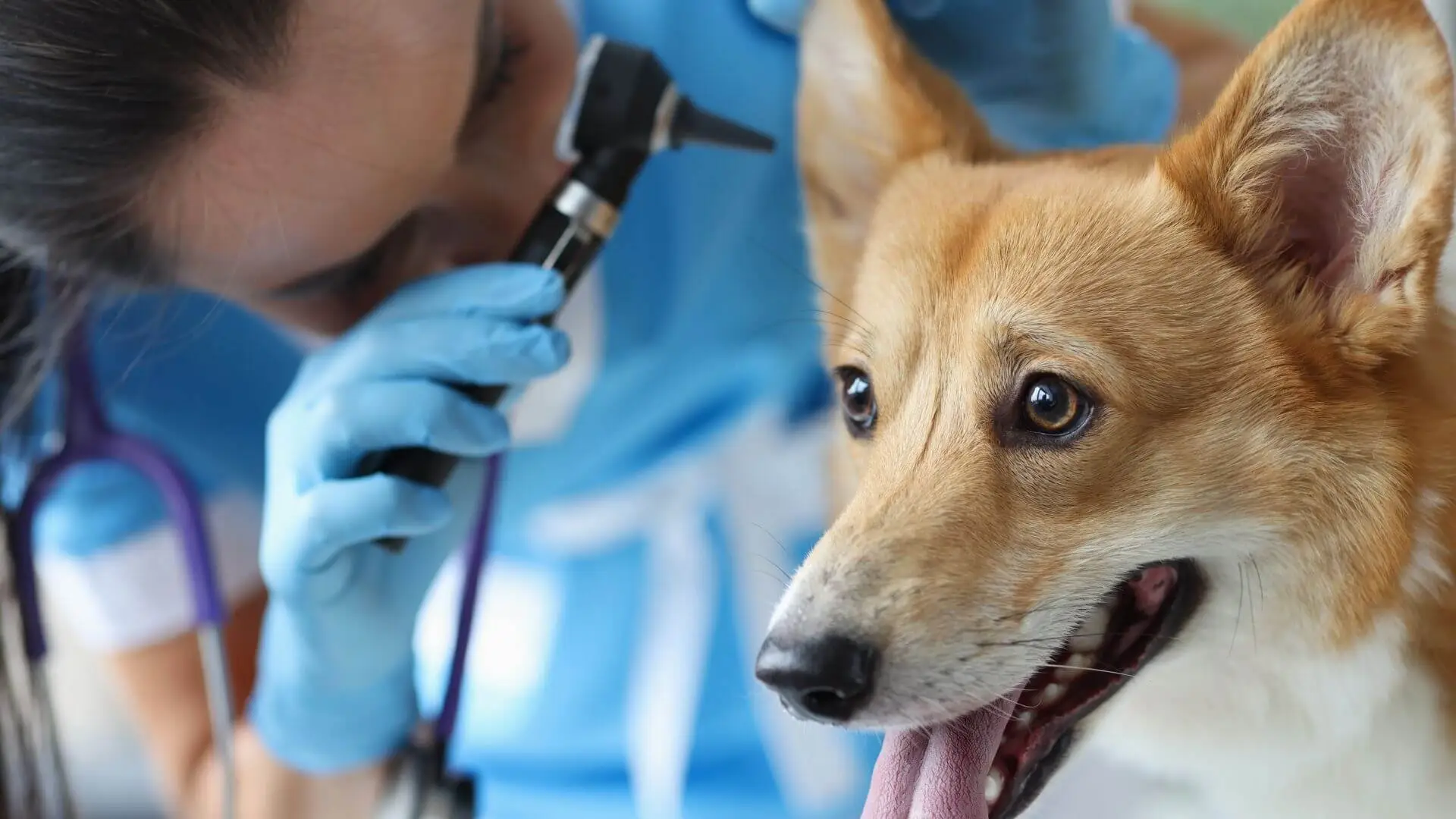To ensure your dog’s well-being, it is necessary to understand the typical symptoms of common dog diseases and take preventive measures. Early detection of diseases not only prevents discomfort for your dog, but also reduces veterinary costs. Let’s take a look at some of the most common canine diseases and how you can protect your furry friend’s health.
Dental diseases:
Dogs, especially those over three years old, are prone to oral infections such as gingivitis and tartar buildup. Severe cases can cause dental diseases such as abscesses. Symptoms include difficulty eating hard foods, bad breath, discolored teeth or gums, and lumps on the gums. Regular visits to the veterinarian for teeth cleaning and good oral care can prevent these problems.
Ear infections:
Frequent scratching of the ears, tilting the head, or shaking the ears can indicate ear infections. Other symptoms include fur loss, odor, and redness or swelling of the ear canal. Preventive measures include drying your dog’s ears thoroughly after exposure to water, cleaning them periodically, and monitoring allergies.
Itchy skin or skin infections:
Persistent scratching may indicate a skin condition, infection, or allergy. Foods like soy, wheat, and corn can cause allergies, while bacterial or fungal infections can cause hot spots or sores. Treatment includes antibiotics, dietary changes, or specialized shampoos as prescribed by your veterinarian.
Stiffness and pain:
Arthritis, joint pain, overuse, bacterial encephalitis, or parasitic infections can cause stiffness and pain in dogs, especially as they age. Symptoms include clumsy gait, reluctance to get up, stiffness of the extremities, swelling and fatigue. Treatment varies depending on the underlying condition diagnosed by your veterinarian.
Kennel cough or dog cough:
Respiratory infections like kennel cough are common and highly contagious. Symptoms include dry cough, nausea, fever, or coughing up white foam. Vaccinations and isolation from other animals help with prevention, while treatment requires consultation with a veterinarian.

Obesity:
Weight management is crucial for dogs because obesity can lead to several health problems, including high blood pressure, arthritis, and diabetes. Consult your veterinarian to evaluate your dog’s weight and make any necessary dietary adjustments.
Tub:
This contagious fungus can cause hair loss and skin lesions. Prevention includes maintaining hygiene and avoiding contact with infected animals. The treatment must be supervised by a professional.
Heartworm:
Heartworm infection is transmitted through mosquito bites and can be fatal if left untreated. Annual exams and preventive medications are essential to protect your dog’s health.
Diabetes:
Dogs can develop diabetes and require insulin therapy to survive. Symptoms include excessive thirst, weight loss and lethargy. Close cooperation with a veterinarian is necessary for effective management.
Cancer:
Cancer is common in dogs and early detection is crucial for successful treatment. Symptoms vary widely and treatment options include chemotherapy, radiation therapy and surgery.
Ultimately, maintaining your dog’s health requires vigilance, preventive measures, and immediate veterinary care. By staying informed about common illnesses and their symptoms, you can ensure a happy and healthy life for your beloved pet.



